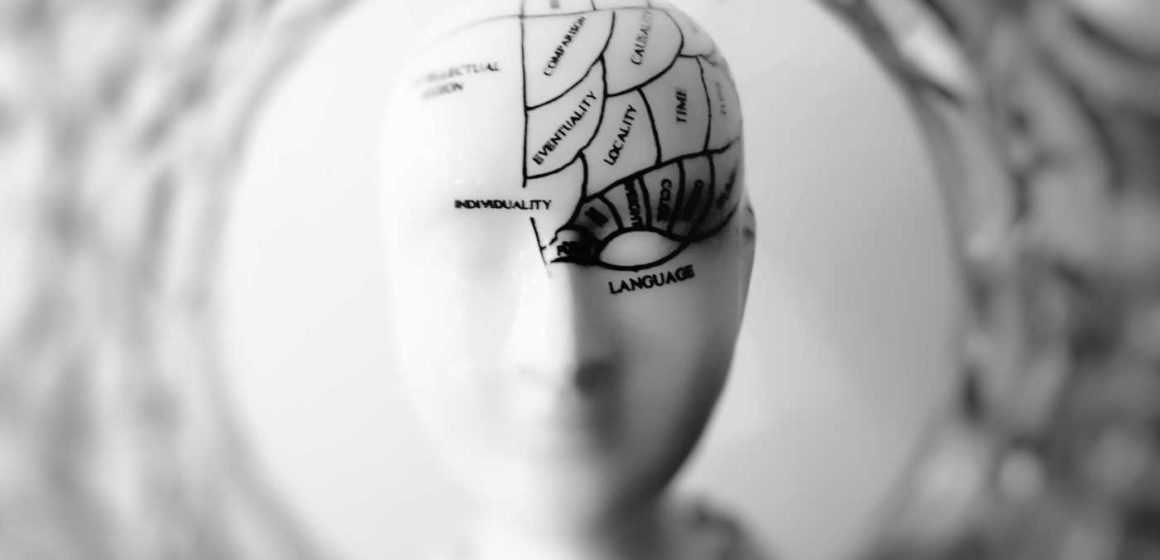Discover How Mindfulness Can Transform Your Mental Health for Good!”
One proven method of improving mental well-being lies in the practice of mindfulness-based therapies.
These therapeutic approaches offer numerous benefits such as enhanced self-control, objectivity, affect tolerance, flexibility, and improved concentration while reducing stress and anxiety levels.
In this blog post, we will delve into the various techniques and practices associated with mindfulness-based therapies that can significantly improve your overall mental health.
Key Takeaways
- Mindfulness – based therapies, which involve practices like meditation and breathing exercises, can significantly improve mental health by enhancing emotional regulation, reducing stress levels, and increasing focus and attention.
- Different types of mindfulness-based therapies include Mindfulness-Based Stress Reduction (MBSR), Mindfulness-Based Cognitive Therapy (MBCT), and Acceptance and Commitment Therapy (ACT). These therapies have been shown to be effective in treating a range of mental health issues such as anxiety, depression, substance abuse, chronic pain management.
- Techniques commonly used in mindfulness – based therapies include body scan meditation, mindful movement and yoga, mindful eating. Research has shown that regular practice of these techniques can lead to reduced symptoms of anxiety and depression while boosting memory function.
Understanding Mindfulness-Based Therapies
Mindfulness-based therapies involve a variety of techniques that help practitioners develop self-awareness and focus on the present moment.
Definition And Techniques
Mindfulness-based therapies are a group of therapeutic approaches that center around the cultivation of mindfulness, which refers to an individual’s ability to focus on their present experiences without judgment and with self-compassion.
Commonly used techniques in mindfulness-based therapies include mindful breathing exercises, guided imagery meditation, and progressive muscle relaxation.
One example is the body scan meditation technique wherein participants mentally scan each part of the body for sensations while maintaining a non-judgmental attitude towards any discomfort or tension they might feel.
Another popular practice involves incorporating mindful movement into daily routines through yoga or walks in nature.
Science Of Mindfulness
Mindfulness-based therapies are gaining popularity due to their numerous benefits for mental and physical health. But what exactly is the science behind mindfulness? Researchers have found that practicing mindfulness meditation can lead to increased activity in certain areas of the brain associated with positive emotional regulation, attention control, and cognitive flexibility.
Additionally, research has shown that mindfulness techniques can help reduce cortisol levels (stress hormone) in the body. This decrease in stress hormones can result in lower blood pressure and better overall cardiovascular health.
Overall, there is robust scientific evidence supporting the effectiveness of mindfulness-based therapies for enhancing one’s mental health.
Different Types Of Mindfulness-Based Therapies
Explore the various techniques and benefits of mindfulness-based therapies, including Mindfulness-Based Stress Reduction (MBSR), Mindfulness-Based Cognitive Therapy (MBCT), and Acceptance and Commitment Therapy (ACT).
Mindfulness-Based Stress Reduction (MBSR)
Mindfulness-Based Stress Reduction (MBSR) is a popular type of mindfulness-based therapy that involves practicing meditation and yoga to manage stress. It was developed in the 1970s by Jon Kabat-Zinn, a professor at the University of Massachusetts Medical School.
The MBSR program aims to help individuals recognize thoughts, feelings, and physical sensations as they occur without judgment or reaction. Practitioners learn how to approach stressful situations with calmness, clarity, and self-awareness through mindful breathing exercises and body scan meditations.
Studies have shown that MBSR can improve emotional regulation, reduce anxiety and depression symptoms, lower blood pressure levels, and increase general well-being.
Mindfulness-Based Cognitive Therapy (MBCT)
Mindfulness-Based Cognitive Therapy (MBCT) is a type of therapy that combines mindfulness practices with cognitive behavioral therapy techniques. It was developed to help people who suffer from depression, anxiety, and other mental health conditions.
The goal of MBCT is to teach individuals how to become more aware of their thoughts and feelings so that they can respond in a more helpful way. One study found that MBCT helped prevent relapse among those who had previously experienced episodes of major depression.
Another study suggested that it may be effective for treating generalized anxiety disorder (GAD).
Acceptance And Commitment Therapy (ACT)
Another type of mindfulness-based therapy is Acceptance and Commitment Therapy (ACT). This treatment encourages individuals to accept their thoughts and feelings instead of trying to avoid or control them.
ACT focuses on helping individuals identify their values and commit to actions that align with those values, even if it causes discomfort or pain. The goal is not necessarily the elimination of negative thoughts or emotions but rather developing a more flexible relationship with them.
For example, an individual struggling with anxiety may practice accepting the anxious thoughts while committing to engaging in activities that are meaningful to them instead of avoiding situations that trigger anxiety.
Techniques And Approaches To Mindfulness-Based Therapies
Techniques and approaches to mindfulness-based therapies include meditation, breathing exercises, body scan meditation, mindful movement and yoga, mindful eating, relaxation techniques, and cognitive-behavioral therapy.
Meditation And Breathing Exercises
Meditation and breathing exercises are fundamental components of mindfulness-based therapies. Practicing these techniques can help individuals achieve a deeper sense of relaxation, promote emotional regulation, and improve overall mental clarity. Here are some common meditation and breathing exercises used in mindfulness-based therapies:
- Mindful Breathing: Focusing on the sensation of the breath moving through the body is a simple yet effective way to cultivate mindfulness. Practitioners can start by taking a few deep breaths and then begin to observe their natural breathing pattern without manipulating it.
- Body Scan Meditation: This technique involves systematically focusing on each part of the body, starting from the toes and moving up to the head. Practitioners gently notice any sensations, tension or discomfort that arises in each area while allowing themselves to relax as they breathe.
- Loving-kindness Meditation: This technique involves silently repeating phrases such as “May I be happy” or “May I be at peace,” while also extending this intention of well-wishing to others close to them, then eventually towards all sentient beings.
- Walking Meditation: Practitioners focus on their walking movement, feeling each step on the ground with awareness like mindful breathing. They can also be encouraged to focus on their surroundings as they walk.
Research has revealed that mindfulness-based interventions (MBIs) changes brain circuits linked with attentional control processes that lead to enhanced cognitive flexibility, emotion regulation,and improved mental health outcomes in individuals struggling with anxiety disorders.
Body Scan Meditation
Another popular technique in mindfulness-based therapies is Body Scan Meditation. This technique involves focusing on each part of the body, starting from the toes and working up to the head, while breathing deeply and slowly.
Research has shown that regular practice of body scan meditation can lead to improved emotional regulation, reduced anxiety levels, lower stress levels, better sleep quality and even an enhanced immune system.
By turning your attention inward through this exercise you may find yourself becoming more aware of sensations in your body which fosters a deeper connection with it.
Mindful Movement And Yoga
Mindful movement and yoga are two powerful techniques used in mindfulness-based therapies to improve mental health. Through mindful movement, individuals can enhance their physical awareness by engaging with the sensations of their body as they move.
This includes activities such as walking meditation, tai chi, or simply gentle stretches. Yoga is another effective tool for promoting bodily awareness while also increasing flexibility and strength.
Research has shown that regular engagement in mindful movement practices like yoga can lead to improvements in mood, stress reduction, pain management, and overall well-being.
One study found that practicing yoga for 12 weeks led to significant reductions in depressive symptoms compared to a control group who engaged in traditional exercise alone.
Another study found that just five minutes of mindful stretching improved participants’ focus and attention throughout the day.
Mindful Eating
Incorporating mindfulness into our eating habits can be a powerful tool for improving our overall well-being. Rather than rushing through meals or mindlessly snacking, practicing mindful eating involves being present and fully aware of what we are consuming.
This means taking the time to savor each bite, paying attention to the flavors and textures of each food item. Mindful eating also means being more intentional about when and why we eat – asking ourselves if we are truly hungry or just bored or stressed.
Research has shown that practicing mindful eating can lead to healthier food choices, improved digestion, and even weight loss.
Relaxation Techniques
Relaxation techniques are an important part of mindfulness-based therapies and can help individuals manage their stress and anxiety. Here are some popular relaxation techniques that can be incorporated into daily practice:
- Progressive Muscle Relaxation – involves tensing and then relaxing specific muscle groups to promote relaxation throughout the body.
- Visualization – involves creating a peaceful mental image, such as a beach or forest, to create calmness and reduce stress.
- Guided Imagery – involves listening to a guided audio that helps one imagine themselves in a relaxed state.
- Deep Breathing – focuses on slow, deep breathing to activate the relaxation response within the body.
- Body Scan Meditation – involves scanning the body from head to toe and noticing any areas of tension or discomfort, then intentionally relaxing those areas.
Using these relaxation techniques regularly can lead to better emotional regulation and management, decreased symptoms of anxiety and depression, improved focus on the present moment, and overall better mental health.
Cognitive Behavioral Therapy
Cognitive Behavioral Therapy (CBT) is a widely used mindfulness-based therapy that focuses on changing negative thought patterns and behaviors. It aims to develop practical strategies to help individuals cope with different situations in life.
CBT encourages patients to identify negative thoughts, feelings, and beliefs that cause anxiety or depression. This insight can lead to developing new problem-solving techniques.
Research has shown the effectiveness of CBT for treating various mental health conditions such as anxiety disorders, depression, eating disorders and substance abuse problems.
CBT is an effective mindfulness-based therapy that helps people develop practical coping mechanisms for managing stressors in their lives by identifying negative thoughts and behaviors which contribute to negative emotions while replacing them with positive ones leading ultimately lead towards better mental health outcomes.
Applying Mindfulness-Based Therapy In Daily Life
Incorporating mindfulness into daily routines can improve mental health by facilitating self-awareness and stress reduction.
Incorporating Mindfulness Into Daily Routines
Incorporating mindfulness into your daily routines can improve mental health and well-being. Here are some ways to do it:
- Start your day with a few minutes of meditation or breathing exercises to set a calm tone for the day ahead.
- Take mindful breaks throughout the day by stepping away from work and focusing on the present moment.
- Use technology mindfully by setting boundaries around screen time and being intentional about your use of social media and other apps.
- Practice mindful eating by paying attention to each bite, savoring flavors, and eating slowly instead of rushing through meals.
- Incorporate movement into your routine, such as yoga or a mindful walk outside, to connect with your body and relieve stress.
- Practice gratitude by taking a few moments each day to reflect on things you are thankful for.
- Prioritize restful activities like reading or taking a bath in the evening to wind down before bed.
- Make time for self – compassion practices like journaling or positive affirmations.
Incorporating these practices into daily routines can improve focus, reduce stress, and enhance emotional regulation – all important components of overall mental health and well-being according to research from [IMPORTANT FACTS].
Mindful Communication
Incorporating mindful communication into daily life is a core aspect of mindfulness-based therapies. It involves being present and attentive in communication with others, actively listening and empathizing with the needs and feelings of those around us.
This form of communication promotes mutual understanding, cooperation, and improved relationships.
For example, when someone speaks to us mindfully, we can tell they are focused on our words because they engage in active listening behaviors such as nodding or responding thoughtfully.
Additionally, by paying attention to our own emotions when communicating with others through techniques like deep breathing or pausing before speaking, we can better regulate our reactions in challenging situations.
Practicing Self-Compassion
Self-compassion is a vital aspect of mindfulness-based therapies for improved mental health. It refers to treating oneself with kindness, warmth, and understanding in difficult moments instead of being self-critical or judgmental.
Research findings show that practicing self-compassion improves overall well-being by reducing stress, depression symptoms, anxiety levels and enhancing emotional regulation skills.
When faced with challenging experiences such as failure or rejection rather than criticizing one’s own abilities self-compassionate people are less likely to ruminate on negative thoughts leading to healthier outcomes.
Benefits Of Mindfulness For Improved Mental Health
Mindfulness-based therapies have been shown to significantly enhance mental health and well-being. Practicing mindfulness can help individuals better regulate their emotions, reduce stress, and improve memory recall.
Studies show that regular meditation reduces anxiety and depression by calming the amygdala in the brain’s emotional center.
Additionally, mindfulness enhances our focus and attention to the present moment. Research has shown that this state of consciousness helps us feel more connected to others around us which leads to greater happiness in life.
Overall, practicing mindfulness brings numerous benefits for those struggling with various mental health issues such as chronic pain, heart disease or even sleep disorders like insomnia or nightmares related to PTSD symptoms.
Conclusion
In conclusion, mindfulness-based therapies are powerful tools for improving mental health and overall well-being. By using techniques such as meditation, breathing exercises, mindful movement, and cognitive behavioral therapy, individuals can learn to regulate their emotions and thoughts while building resilience and enhancing their focus and attention.
Through practicing self-compassion, incorporating mindfulness into daily routines, and embracing the mind-body connection, practitioners can experience stress relief and improved physical health.
FAQs:
- What are mindfulness-based therapies and how can they improve mental health?
Mindfulness-based therapies involve the practice of being present and aware in the moment, which can help individuals better manage stress, anxiety, depression and other mental health concerns. These types of treatments teach patients to accept their thoughts and emotions non-judgmentally while also developing skills for coping with difficult feelings or experiences.
- Which techniques are commonly used in mindfulness-based therapies?
Commonly used techniques in mindfulness-based therapies include deep breathing exercises, body scans, meditation practices that focus on senses like sight or sound, as well as guided imagery visualizations that promote relaxation or self-acceptance.
- Is mindfulness therapy effective for everyone?
While many people find relief from symptoms associated with mental illness through practicing mindfulness-based techniques others may require a more comprehensive approach involving medication or talk therapy to address underlying issues related to mood disorders such as bipolar disorder or schizophrenia.
- How long does it take before I see results from practicing mindfulness?
The effects of practicing mindful awareness can be felt immediately but often times significant changes occur over time with continued practice; typically within 8 -12 weeks regular engagement yields noticeable benefits including decreased levels anxiety & increased sense wellbeing allowing individuals who struggle feel more resilient during challenging moments without relying upon pharmaceutical interventions alone.
General Facts
- Mindfulness-based therapies can lead to self-control, objectivity, affect tolerance, enhanced flexibility, equanimity, improved concentration and mental clarity.
- Practicing mindfulness can reduce stress and improve overall mental and physical health.
- Mindfulness-based therapies can help treat depression by enhancing practitioners’ ability to regulate their emotions.
- Research has shown that mindfulness meditation can decrease anxiety and depression.
- Mindfulness-based approaches have been shown to significantly reduce symptoms of anxiety and depression.
- Mindfulness can lower stress, decrease depression, and even improve memory.
- Mindfulness-based stress reduction therapy is used to alleviate stress and worry about the past and future.
- Mindfulness can improve overall well-being and happiness in life.
- Practicing mindfulness can lead to better emotional regulation and management.
- Mindfulness-based therapies can help individuals better focus on their present and improve their mental health.
Source URLs
https://www.apa.org/monitor/2012/07-08/ce-corner
https://www.helpguide.org/harvard/benefits-of-mindfulness.htm
https://positivepsychology.com/benefits-of-mindfulness/
https://www.mindful.org/the-science-of-mindfulness/
https://www.mentalhealth.org.uk/explore-mental-health/a-z-topics/mindfulness
https://www.verywellmind.com/the-benefits-of-mindfulness-5205137
https://synchronybh.com/benefits-of-mindfulness-based-stress-reduction/

Dr. O “TheTeenDoc.” helps clinicians communicate better with their teen patients. She speaks, blogs www.TheTeenDoc.com, researches and consults on communicating with teens. She has written two e-books for parents and teens on communicating about the challenging subject of sexual health. You know, teens that bring chief complaints of belly pain, social crisis, emotional turmoil and obnoxious parents. Or, is it the parents with obnoxious teens? Sometimes she mixes that complaint up.
Dr. O speaks www.TheTeenDoc.com to and is consulted by clinicians who want advice managing difficult teen and teen-parent situations. These situations frustrate clinicians and slow down their clinics making them wonder if they’ll ever walk out the door for the day. Every day, in her own practice, Dr. O helps clinicians communicate better with teens and helping you is another level of reward. Her talks are fun and informative, and her delivery empowers clinicians to actually think teens are an awesome group to work with. Her energy about teens is contagious and has inspired her coaching clients to have less fear and more confidence with the teens in their panel. Her dedication to seeing you succeed with a group she is so passionate about is what makes Dr. O’s Lounge the place you want to be!
If you are a clinician that has teen’s in your practice, from pediatrics to internal medicine, the person with whom you need to connect is Dr. O “TheTeenDoc!” You can listen to a complimentary audio “The Art of Teen Medicine” and recommend her e-book “Are You Serious? It’s Just Sex!” to your patients. And while you’re there, become part of Dr.O’s Lounge.
Specialties: consulting, coaching, counseling, mental health, research, seminars, spanish, public speaker, teaching, communications between teens and adults



